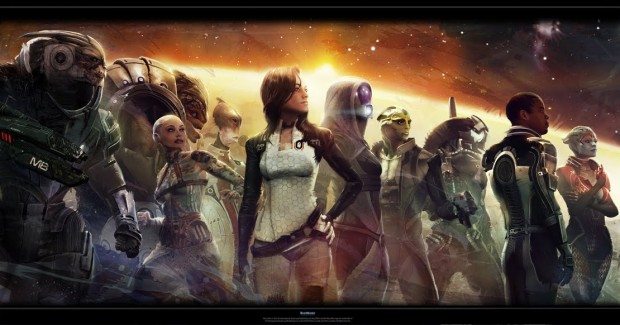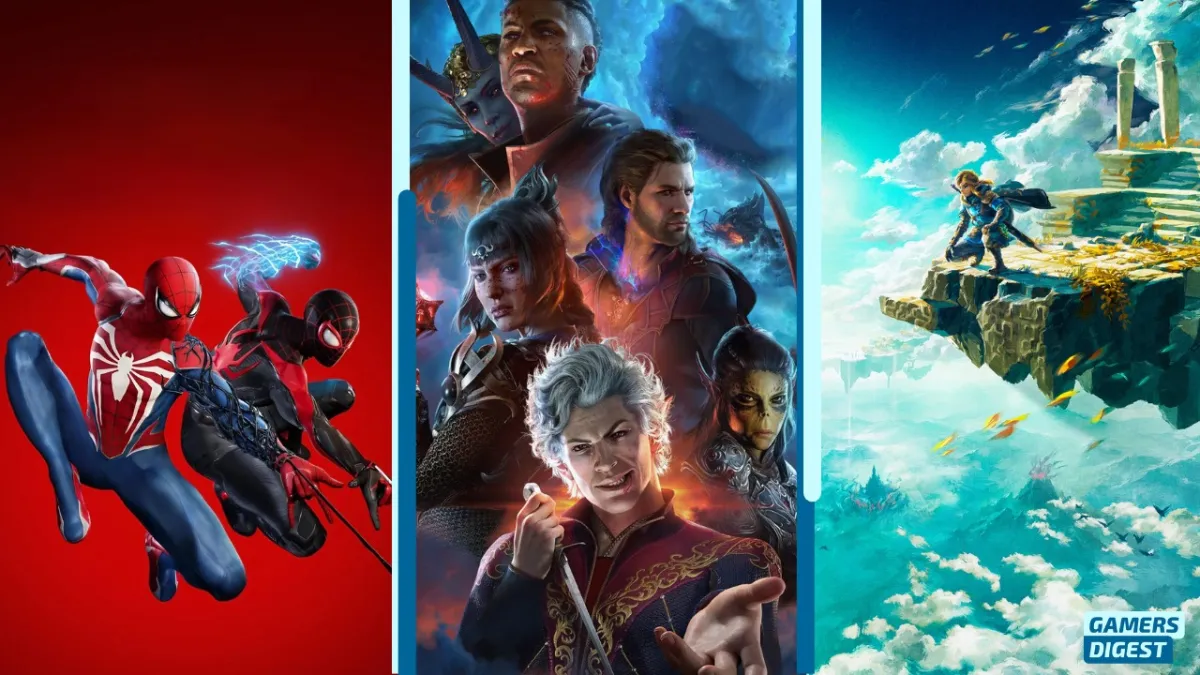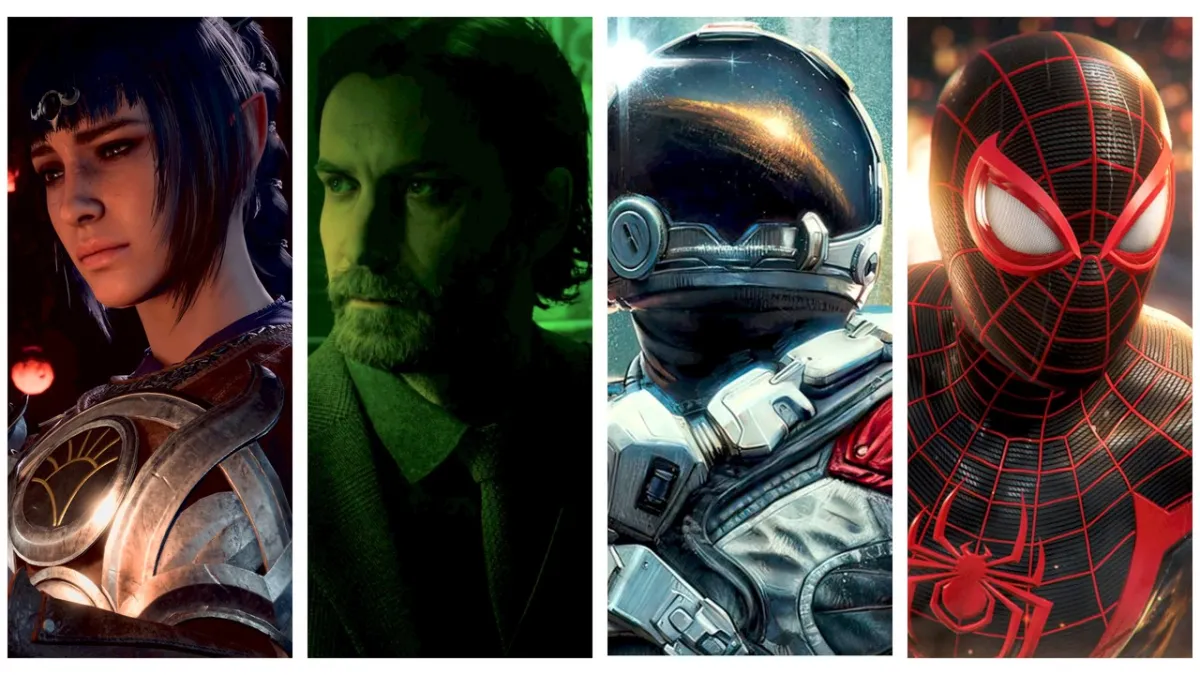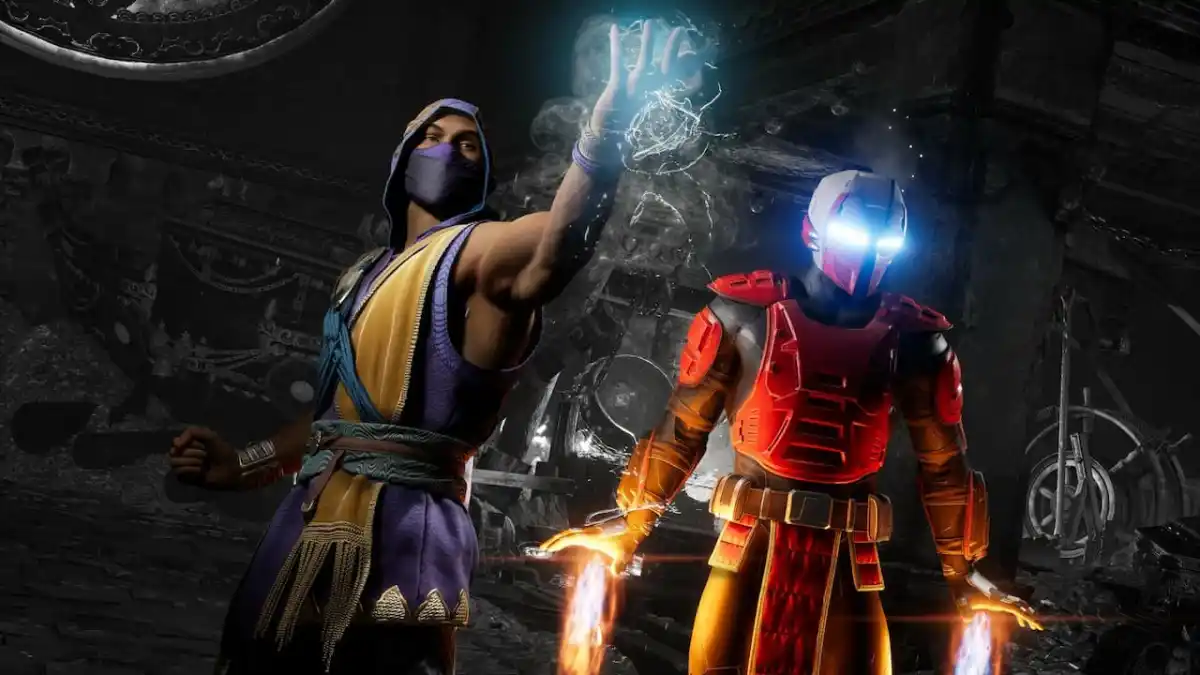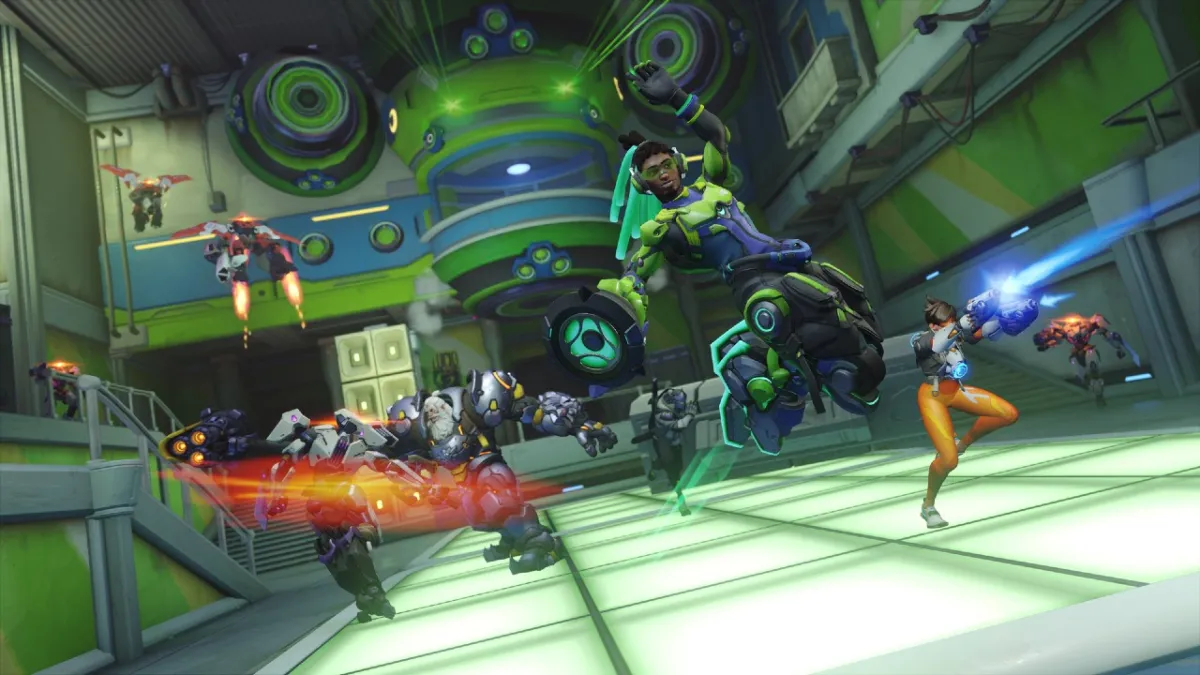Far too often nowadays I hear game developers using the word “cinematic” as a description of their game. For example, look no further than this video with 343 Industries where the sound designers say they want to take a “cinematic approach” to the music. Or BioWare praising their usage of cinematics in games. Or the praise of games like Uncharted 2, Mass Effect 2, and Heavy Rain, games that very much so sacrifice player agency in order to tell an “emotional engaging story” or in the case of Uncharted, move from one cinematic set piece to the next. Things have gotten so bad that you can finish the tutorial level without firing your gun once. And the sad part is, people are now using the phrase “cinematic” as if it’s a complement, as if it is somehow superior to being a “video game”. And this is where I think the game industry needs to start growing up and stop trying to copy cinema, because that will ultimately never work.

Games are not movies
The first problem stems from the fact that video games are not like movies. The strength of cinema lies in its ability to tell stories through audio and visuals, something that novels and comics cannot do. The strength of video games lies in its ability to let the player take control of the story, something that no other medium except board games can accomplish. And yet video games have increasingly begun to take away player control and choice all in the hopes of telling some “cinematic story” that ultimately will never live up to cinema. I thought we had moved on from using cinematics to tell a story after games like Fallout, Planetscape: Torment, System Shock, Marathon, Half-Life, Halo and Deus Ex showed you can create an engaging story without the need of using cinematics or “cinematic approaches” excessively. The greatest accomplishment of Half-Life is that it is able to tell an entire story without once ripping control away from the player through cinematics. The beauty of games like Planetscape or Deus Ex is that they allow player to shape the story of the game, not the other way around.
Bad Storytelling
As much as it pains me to say, games are not a good medium for telling an actual “good” story. Simply put, they are too long or suffer from bad writing, plotting or pacing. The pacing is just not there. Cinema, which is now recognized for its ability to tell stories thanks to the likes of Citizen Kane and The Godfather, is almost never longer than 3 hours. Reason being is that the plot is the plot. Anyone who has watched the original Casino Royale can tell you that you do not make things longer by adding more plot. That is just a disaster in the works, and ruins all sense of pacing. The problem with games is that 3 hours is considered much too short unless it’s a small, downloadable title like Braid or Journey. So developers either add to the plot or simply add filler. For example, look no further than Assassin’s Creed 3. That game is filled to the brim with filler quests and activities, most notably concerning almanacs and Homestead missions. As a game, it is more than acceptable. As a story, it ruins all sense of pacing. Conner is an Assassin tasked with saving his village and stopping the Templars, yet he’s jumping from building to building chasing Almanac pages and giving courier messages?
Another example of bad storytelling is Mass Effect 2. That game is known for its “wow” moments like the Suicide Mission, yet storytelling wise it breaks the rule of thumb of recruitment stories. There are always three phases to a “Dirty Dozen” or “Seven Samurai” or even “The Avengers”-type story. The first phase is recruitment. The second phase is an event that allows the group to forgo their differences and come together as a unit. The final phase is the group usually coming together to save the day and what-have-you. In Mass Effect 2, the writers tried to combine the second and third phases into the climax, which doesn’t work. That is simply bad writing. And yet Mass Effect 2 is held as a GOTY, if not a G.O.A.T., and the pinnacle of video game writing and storytelling. And don’t get me started on Heavy Rain and its abundance of plot holes. Simply put, video games can tell stories. But they are personal stories, stories of experiences and interactivity, kind of like improvisational comedy. They aren’t meant for authored experiences like novels or movies or TV shows.

Authorship vs. Interactivity
A final problem with the video game industry is that, in pursuit of telling this “emotional, engaging cinematic game”, they rip control out of the player, effectively losing the biggest aspect that makes video games unique in the first place. Interactivity in a realized world. “Games” like Uncharted or Call of Duty are good at what they do, yet sacrifice so much player interactivity for an “authored” experience. What makes a video game truly unique isn’t the story you craft for the player, but the story the player crafts for the game. As an example, look at Dishonored. Plot wise, it’s hackneyed at best and never seems to get the pacing down pat. But as a video game, it is top-notch. You decide how to play the game, not the other way around. There are multiple paths to reaching your target, never mind the options on how to assassinate your target, or if you just want to knock the target out cold or oust him/her. The possibilities are endless, which in turn lead to great personal stories because no one’s experience will be the same. Another example is Fallout: New Vegas. While there are some missteps with the plot, along with the Casear arc being by far the weakest of the four, it also leaves it up to the player on how to play the game, from builds to choosing sides. That is ultimately what makes video games a truly special medium: player agency and player choice in a fully realized world.
History
Of course, it should come to no surprise that the video game industry is trying to copy Hollywood, as it is only following the path of every medium before it. Plays for the longest time kept trying to emulate novels. It was only until writers like Shakespeare come about that plays adopted a distinct style and story telling so they didn’t just feel like a poor-man’s novel. Cinema in its early stages was stuck trying to copy plays and novels rather poorly. However, along came the gem Citizen Kane and later on The Godfather and soon cinema became a respected medium for telling stories. Comics for a while were stuck trying to be a mixture of novels and cinema, and doing neither very well. Then, the Golden Age of Comics arose, and soon they became known for their distinctive type of storytelling. TV shows were stuck trying to copy cinema, yet eventually they moved on. Video games are so close nowadays to being there, and yet they are stuck in this rut of “cinematic” approaches and overall just trying to copy Hollywood that they lose what made them unique in the first place. You. The player. No other medium except board games can account for that level of immersion so why not embrace what it is and quit trying to copy something that will never be achieved? It’s time video games grew up and established their own identity, not a poor man’s Hollywood.



